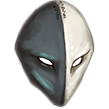Table 10-6: DC Adjustments
| Difficulty | Adjustment | Rarity |
| Incredibly easy | -10 | - |
| Very easy | -5 | - |
| Easy | -2 | - |
| Hard | +2 | Uncommon |
| Very hard | +5 | Rare |
| Incredibly hard | +10 | Unique |
You might decide a DC should differ from the baseline, whether to account for PCs’ areas of expertise or to represent the rarity of spells or items. A DC adjustment represents an essential difference in the difficulty of a task and applies to anyone attempting a specific check for it. Adjustments happen most often with tasks whose DCs are based on their level. Adjustments use a scale of –10 to +10, from incredibly easy checks to incredibly hard ones, and are broken into increments of 2, 5, and 10. You’ll often apply the adjustments for uncommon, rare, or unique subjects.
The adjustments’ names don’t translate to how hard a task actually is for a PC or group of PCs, and adjustments aren’t meant to balance out or replace PCs’ bonuses and penalties. PCs who invest in a skill will become better and better at that skill as they increase in level. For example, even the best 1st-level PC has grim odds against an incredibly hard 1st-level DC, with a huge chance of critical failure, but by 20th level, an optimized character with a modicum of magic or assistance can take down incredibly hard 20th-level DCs over half the time, critically failing only on a 1. At higher levels, many groups will find that the very hard DC is more like standard for them; keep that in mind if you need a check that presents a true challenge to a high level group.
You might use different DCs for a task based on the particular skill or statistic used for the check. Let’s say your PCs encounter a magical tome about aberrant creatures. The tome is 4th-level and has the occult trait, so you set the DC of an Occultism check to Identify the Magic to 19, based on Table 10–5. As noted in Identify Magic, other magic-related skills can typically be used at a higher DC, so you might decide the check is very hard for a character using Arcana and set the DC at 24 for characters using that skill. If a character in your group had Aberration Lore, you might determine that it would be easy or very easy to use that skill and adjust the DC to 17 or 14. These adjustments aren’t taking the place of characters’ bonuses, modifiers, and penalties—they are due to the applicability of the skills being used.
The DCs in this chapter give an individual character a strong and increasing chance of success if they have some proficiency. On occasion, though, you’ll have a task that only one person in the group needs to succeed at, but that everyone can attempt. The number of dice being rolled means that there’s a very high chance at least one of them will succeed. Most of the time, that’s perfectly fine, but sometimes you’ll want the task to be a challenge, with some uncertainty as to whether the party can succeed. In these cases, make the check very hard, or incredibly hard if you want it to be particularly difficult or at high levels. At these DCs, most of the party will probably fail, but someone will probably still succeed, likely a character who has heavily invested in the given skill, as is expected for specialized characters.
 Licenses
Sources
Licenses
Sources
 Contact Us
Contributors
Support the Archives
Maximize Menu
Contact Us
Contributors
Support the Archives
Maximize Menu
 Licenses
Sources
Licenses
Sources
 Contact Us
Contributors
Support the Archives
Contact Us
Contributors
Support the Archives









